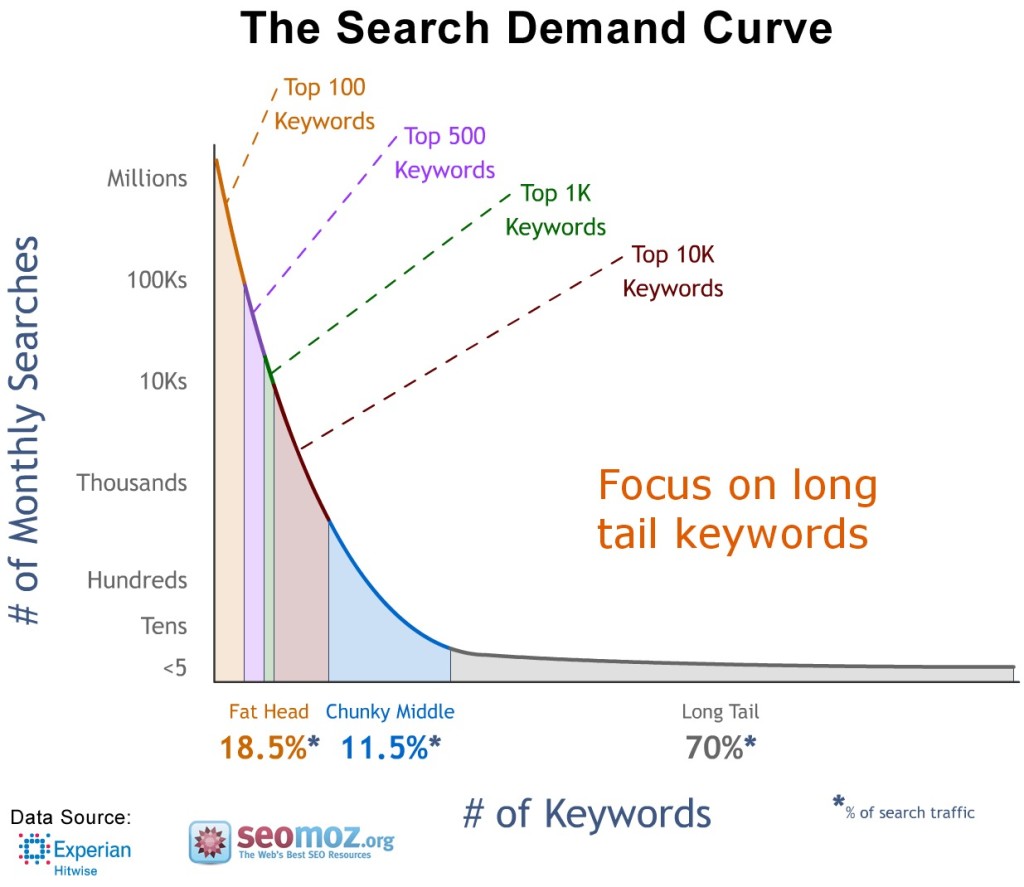Broadly speaking a website audit and an advanced keyword research lay the ground work for any SEO plan. A SEO audit throws light on various aspects of the current status of a website, like
1. How much search engine bot friendly is your website? – Technical side.
2. How well your website perform on customer’s browser? – Performance side.
3. Does it have enough back links with other web pages? – Back link quality check.
4. Is it customer friendly in terms of - content and utility to end user?
The above 4 major heads will throw lot of details about areas need your urgent attention and areas where you are already doing well. Once you are through with the step, you have to undergo an advanced keyword research, to find out most important keywords which has got potential to drive your most wanted prospects traffic to the website.
Advanced Keyword Research - 6 step process
1. Create a set of keywords based on various themes. A brainstorming session with your marketing and product development team will help to create a quality list of keywords your prospects may use with the intent that will make them qualify as your prospect. Give a themes approach to your seed set keywords. Ideally do not use any tools to generate your base keywords. Reason being that tools cannot think from prospect intent perspective. Also ensure to follow universally followed n gram distribution while creating the seed set.
Eg: For an online travel agent like (makemytrip.com), base keyword for the theme Taj Mahal packages will be ‘Taj Mahal tour packages’ or ‘Taj Mahal package with air tickets ’. But the keyword ‘Taj Mahal’ alone will not be an ideal one, because intent behind somebody searching for the keyword ‘Taj Mahal’ may not necessarily be tour packages. May be he or she is looking for history of Taj Mahal. But in the former case intent is very clear that user is looking for services the business can cater to.
2. Use this set as your seed set to generate more possible keywords. Here you can use any free keyword research tools to make your keyword list elaborate. Tools will help to create various permutations and combinations in which these keywords may be used Eg: Google keyword planner.
3. Also try to collect keyword insights from competitor perspective and industry perspective.
Eg: Use a related Wikipedia page url or a competitor page url in keyword planner to generate more related keyword.
4. Now collect details like average monthly search volumes for each keyword and corresponding competition. The competition details provided by Google keyword planner is from PPC perspective. Here you need to depend on some quality paid tools like Majestic SEO or Market Samurai, to get insights about the various levels of competition.
5. Get more insights into various factors of competition like title, anchor text etc. This will help you understand how soon and kind of effort you need to undergo to get the keywords ranked. SEO competitor analysis is a crucial part of your advanced keyword research. Ideally you should do a Google search with the keyword.Leave all those listing sites like Amazon, Yell, different online yellow pages etc.Find out a direct competitor from your niche and analyse. Possible reasons could be they have better keyword rich content in their pages, or they might have more quality back links from other pages in the web or it could be some other reasons.To find out back link profile you need the support of some quality paid tools like opensiteexplorer.com or Majestic SEO.It gives a complete list of back links a particular webpage has.Identify the sources from which their high value quality back link, also identify the anchor text used for particular linking. If it is content, identify total word count, keyword density etc. By identifying the exact reason, you can plan a better strategy or even replicate same like back links from better or more pages ,or more quality content.
6. Short-list a set of keywords based on high search volume and, which aligns with your immediate business goals. Categorize keywords into very specific long tail keywords, branded keywords and generic keywords. Initially it is ideal to optimize brand keywords and long tail keywords. Even though these keywords may not be volume drivers, they have necessary trait to drive quality traffic. So businesses will see some traction and ROI in the initial months itself. Whereas, if you focus on generic keywords it may take anything between 3 to 6 months to start showing some results.
Above mentioned 6 step process will give you a bird’s eye view of advanced keyword research process. When you actually start doing it you may need to research more micro details of each component.All businesses have various questions & objectives while doing SEO. One of the common question businesses have is should I do SEO or Adwords Campaign?. Whether you do SEO or PPC, advanced keyword research is an integral part.Once you are done with the research, you will have a complete list of relevant and important keywords for your business. It can be a solid base to build your content strategy around. For example if you got some important keywords which does not have much search volumes, they may not be eligible to create content for your website, same time you can consider them to create content for blogs, which in turn can rank for those searches. Most important factor is every activity should be carried out with the ultimate objective of achieving your business goal. Any step done without aligning with your business goal is a waste of time, effort and money.
How will SEO shape up in the coming year. Check out our top SEO trends 2015.





